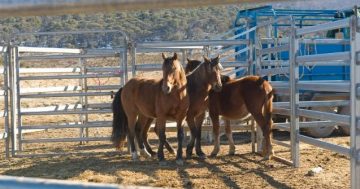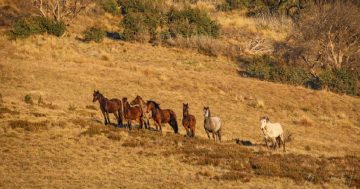Reviewed by Robert Goodman.
By Greg Buchanan, Pan Macmillan, $32.99.
 From its grizzly opening onwards, Greg Buchanan’s debut Sixteen Horses owes much more to the British gothic tradition than to crime fiction. There is, on the surface a crime to be solved, and two investigators. But that investigation, for the most part, is just an excuse to get under the skin of the setting and the cruel and violent secrets that it holds.
From its grizzly opening onwards, Greg Buchanan’s debut Sixteen Horses owes much more to the British gothic tradition than to crime fiction. There is, on the surface a crime to be solved, and two investigators. But that investigation, for the most part, is just an excuse to get under the skin of the setting and the cruel and violent secrets that it holds.
The instigation of the action in Sixteen Horses is the grizzly discovery of sixteen horses heads found half buried, each with one eye staring at the sky, together with a knot of tails on a farm outside of the coastal British town of Ilmarsh. The act had taken place on Guy Fawkes Night when the horses from various places around town had been sedated so as not to be spooked by the fireworks and everyone in town was at the pyre. Local detective Alex Nicholls, a man with deep secrets who himself is barely holding things together, is out of his depth and a forensic vet, Cooper Allen, is called in to help with the investigation. But just as it seems they are getting somewhere the story and the narrative takes a wild swerve, the town put in quarantine following the long term consequences of the World War 2 testing of anthrax spores and Alec’s eighteen year old son goes missing. Cooper is asked to stay on to investigate.
Sixteen Horses is all atmosphere with only a thinly wavering plot, centred mostly around Cooper and her investigation. The narrative ranges across a range of character points of view often for no particular reason other than to add to the general feeling of hopelessness and despair. The gothic styling is overt. Set in a failing marshland village, peopled with an array of damaged characters, with both the people and the place itself mired in the sins of the past. There may be no ghosts but the secrets of the landscape haunt the narrative, literally bursting forth to take revenge at one point. But as a crime novel there is something lacking. The investigation never feels central to the narrative and falls away when the anthrax danger emerges only the reappear again in a confusing and frankly unbelievable finale.
Buchanan digs deep into a dour English tradition of muddy, rainswept locales struggling to deal with lost glory with a cast of characters to match. The narrative itself is confused and confusing, never really sure of what it is trying to be or say. It is full of small, and not so small, digressions that make no sense when read and are never later put into a firm context. The violence, particularly in relation to animals will certainly put some readers off. But the descriptions of the landscape can verge on the poetic and the gothic atmosphere of Ilmarsh is well captured. Which makes Sixteen Horses overall an interesting but not entirely successful debut.
This and over 600 more reviews can be found on Pile by The Bed.











